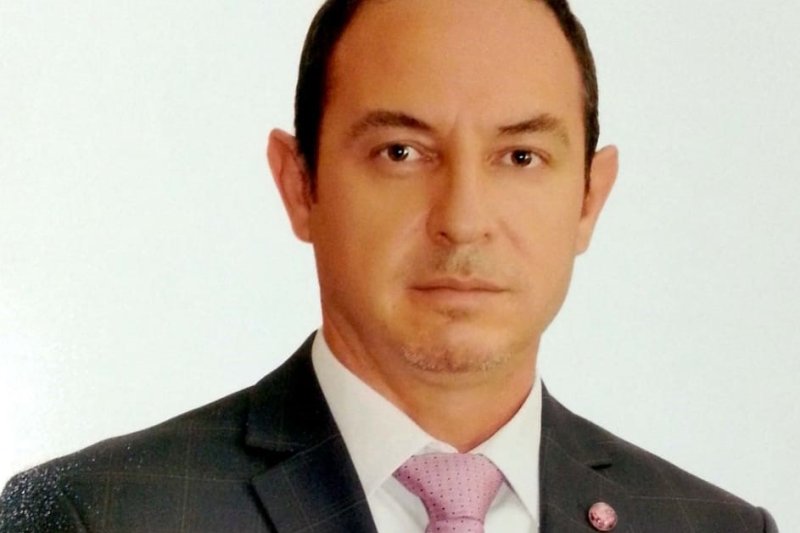Albania in Security Council, Another Missed Opportunity Like That of OSCE?
Ability is not worth much without opportunity. But when you have the opportunity and achieve nothing, you are simply incompetent. And if one sits at the head of a country, hand in hand, the pillars of regression bless the curse of a man's incompetence on a people, and not only…
Small countries like Albania do not have many cases of protagonism to do something, to say something or to achieve something on the agendas of international politics. And, a lost case is a heavy slap, the fracture of which is much more than an ugly image.
Albania just closed the OSCE lead 2020-2021. And, except for the show with loose clothes and sneakers, it brought nothing. The Prime Minister's insistence from the beginning, to stay on the adventure of representation with the undecreed Minister Caka, reminded us of the mentality of the leaders of the red bloc in the middle of 1961. When Khrushchev ironized the profile of the Albanian delegation and compared Ramiz Alia with Enver Hoxha's pants. There is no greater loss than the loss of self-respect.
The initiative of our Prime Minister at the head of the OSCE to mediate in the Belarusian crisis managed to arouse only memes of symmetrical sarcasm between Lukashenko and Rama, while the "fantastic" meetings with Makton resulted in the latter's veto on the opening of negotiations. Taking extra initiatives, outside of Euro-Atlantic initiatives, such as the "Open Balkans", has strained Albania's regional partnership and credibility. The insistence on not giving up, goes even deeper. Our neighbourhood policy shines in the eyes of Vuçiç and Zaev, but it has aggravated the relations between Albanians as never before. The weakening, disruption and abandonment of the Albanian political factor in Kosovo, Montenegro and Northern Macedonia, the only stable Euro-Atlantic pole in the Western Balkans region, only contributes to the increase of Russian influence.
Be careful when reading health books because you may die from a typo, says Mark Twain, but when you do not know how to read politics, you risk contaminating the future of your country. The Prime Minister's incoherent statements show political immaturity and lack of strategy. While the British authorities are alarmed over the Russian project for the destabilization of the Western Balkans, Rama declares that Albania has no problem with Russia. Albania does not have the luxury of stick and carrot diplomacy, but instead of silence, a parliamentary resolution would be the serious answer to Lavrov's false accusations.
Every era has its own fascism, says Primo Levi, and countries with a history of authoritarian-led chauvinist genocides tend to degenerate into fascism. Geopolitical and regional topicality needs clear, unequivocal attitudes. In all geopolitical analyses, Russian influence in the Balkans directly affects not only our national security but also that of NATO. The involvement of Moscow in the attempted coup in Montenegro, the arming of Serbia, the support of paramilitary groups in northern Mitrovica, the increased presence of Wagner mercenaries and Russian services throughout our territory, clearly speak of the aggravated situation in which the region is located. In addition, the return of the Russian military presence in the Mediterranean, for the first time since the Cold War, nurtures the former imperial hegemonic mentality.
Big events need trained and serious people, capable of making important decisions. Albania's performance is not at the level of time and in function of our national interests. It is driven by individual interests with myopic protagonism. Our foreign policy is a total failure. The faded Albanian diplomacy, with 30 ambassadors who have completed their mandates and are not replaced, is the most significant abuse of the irresponsibility of a government that identifies with a single person. No recognition for Kosovo in 9 years. The project of economic diplomacy, like many others, did not cross the contours of declarative pomp.
The lack of a strategic project on our internal and external security shows the level at which this country has reached. Low-profile leaders at the head of institutions can only guarantee the political security of the person who leads them. The breakdown of the essential "check and balance" mechanism of a functioning democracy is turning constitutional institutions into party depots. Abuse of lobbying energies, based on personal interests with traps of "non-grata" for political opponents, have given the government non-grata status in relation to national interests.
Government corruption is the real reason for instability. Our internal security continues to be compromised by the conduct of the government and governors linked to crime, drug cartels and the money laundering mafia. In no member country of NATO you can turn off the army radars at the expense of drug smugglers. While indices of international reports on media freedom and human rights continue to fall freely, the 3D virtual Albania of government hypocrisy is quite different from the real Albania.
Naturally, a state with so many internal problems, run by a government with weak moral credentials, cannot be a contributor to solving international problems. Those who can not change their mind can not change anything, says G. Bernard Shaw. Therefore, even this time, in the greeting speech on the occasion of the beginning of Albania's mandate in the Security Council, our Prime Minister continued with the same pathology. Stupid lines with the President of the Assembly "As far as I understand, you are the boss of many of these in this room" marked the second act of the beginning of the 'tallava' policy, equivalent to the mandate of Albania in the UN Security Council, with the clown medieval in the king's palace.













